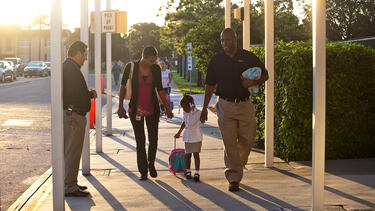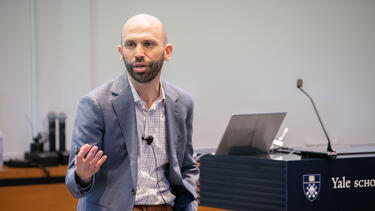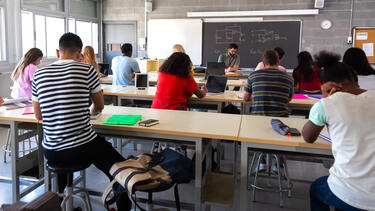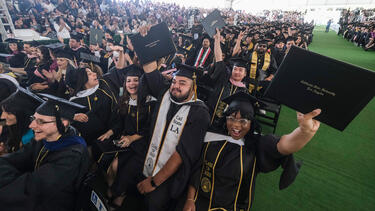Education
An Interactive Tool Helps School Districts Redesign Their Bus Schedules—and Get Kids a Little More Sleep
Yale SOM operations scholar Zhen Lian and her co-authors created an interactive tool that helped San Francisco reach consensus on school schedules, move start times later, and save millions of dollars in transportation costs.

Why Is Enrollment Plunging in the Public Schools?
Public school enrollment has dropped sharply since COVID-19, with some students moving to private or charter schools and others leaving the system entirely, according to a new report co-authored by Prof. Faidra Monachou.

Free Pre-K Gives Parents’ Income a Long-Lasting Boost
Prof. Seth Zimmerman and his co-authors found that parents with kids in New Haven’s lottery-based pre-K program earn thousands of dollars more per year than their peers, likely because they are able to work longer hours and make more progress in their careers.

How College Presidents Respond to Critiques of Higher Ed
According to Prof. Jeffrey Sonnenfeld and co-author Steven Tian, the college and university presidents who attended the Yale Higher Education Leadership Summit on January 28 are ready to fight back against attacks and make the case that American higher education is an “irreplaceable beacon of light and truth.”

Understanding the Economics of Education
Yale SOM’s Seth Zimmerman uses the tools of economics to offer data-driven answers to real issues facing education students, parents, and schools.

How Universities in Israel Keep Going
Profs. Edward Kaplan and Evan Morris were part of a group of Yale faculty that traveled to Israel to meet with counterparts at Israeli universities. They came away with insights into how research and teaching can bring people from different backgrounds together in a shared enterprise.

Teachers See Misbehavior from Black Students as More Blameworthy
In order to isolate the role of race in teacher-student interactions, Prof. Jayanti Owens created videos using actors to depict misbehavior. She found that teachers are more likely to describe an incident with “blaming” language if the actor playing the misbehaving students is Black.

Does Capital Spending on Schools Improve Education?
Yale SOM’s Barbara Biasi and her co-authors found that some projects improve test scores and others boost local property values—but they aren’t the same ones.

Expanding the Pathways from School to a Career
Washington state’s collective action approach to career-connected learning expands students’ horizons, connects employers to their future workforce, and builds community, says Maud Daudon ’83 of Career Connect Washington.

Black Boys Face Double Jeopardy at School
Teachers tend to blame Black boys more than White boys for identical misbehaviors, finds Yale SOM’s Jayanti Owens. Black and Latino boys also receive harsher punishment because the schools they attend tend to have more punitive cultures.

Are Student Loans Worth It?
We asked SOM’s Paul Goldsmith-Pinkham, whose current work focuses on assessing the costs and benefits of debtor protection policies and understanding the role that consumer debt plays in the macroeconomy, to put President Biden’s decision to forgive student debt in context.
